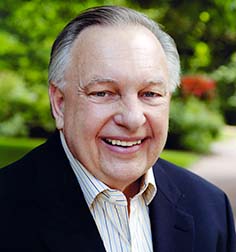About Edward G. Carmines
It seems as if everyone has an opinion on every current political issue and a communications platform with which to share that view. But when Edward G. (Ted) Carmines talks, people truly listen. Carmine's path-breaking scholarship, and most notably, his work related to the complex interaction of race, class, and ideology within the American political system, has earned the respect and admiration of the world's leading political scientists. He is widely regarded as a top scholar on race in American politics and is, according to Gary Jacobson, distinguished professor in the Department of Political Science at the University of California, San Diego, "without question among the most accomplished, productive, and influential scholars of his generation."
Since 1974, Carmines has authored or coauthored more than 160 publications, which have been cited over 11,500 times. In a recent study of the top political scientists in the United States, Carmines ranked fifth in terms of cited works among those who specialize in American politics and fifth among all scholars in his age cohort. The frequency with which he is cited reflects the major contributions he has made in measuring public opinion and political behavior, illuminating the impact race has had on American politics over recent decades, and examining the underlying causes of political polarization. His co-authored book Issue Evolution: Race and the Transformation of American Politics is considered one of the most important books written on one of our nation's most divisive issues and a seminal study of how racial attitudes contributed to a dramatic realignment of national party politics. Issue Evolution, which was named Best Political Science Publication in U.S. National Policy when it was published in 1989, recently received the Philip E. Converse Book Award from the American Political Science Association. Carmines' follow-up books, Prejudice, Politics, and the American Dilemma and Reaching beyond Race, delivered more insights into the issue of racial attitudes on public opinion, politics, and policies. The latter, written with Paul Sniderman, Fairleigh S. Dickinson Jr. Professor of Public Policy at Stanford University, won the award for Best Political Science Publication in the field of U.S. national policy in 1997. Carmines is the only person to have won this award twice. His remarkable body of scholarship and level of productivity have earned Carmines some of the highest honors in his field, including election to the American Association for the Advancement of Science and the American Academy of Arts and Sciences.
He has been awarded fellowships at Stanford's Center for Advanced Study in the Behavioral Sciences (twice) and at Princeton's Center for the Study of Democratic Politics. In 2014 he will be the John G. Winant Visiting Professor of American Government in Balliol College of Oxford University, a prestigious appointment that follows a rigorous selection process. For now, though, Carmines continues to base his teaching and research in Bloomington. Accordingly, a colleague has dubbed him the "Reggie Miller of political science," comparing him to the former basketball superstar who played his entire career with Indiana's Pacers. "A scholar of his stature could have gone anywhere he wanted, but he chose instead to direct his considerable talent toward institution-building at lndiana University," says Diana Mutz, Samuel A. Stouffer Professsor of Political Science and Communication at the University of Pennsylvania. "The team has benefited greatly from his leadership. Many of my contemporaries were grad students at Indiana University, and they credit Ted for their own careers. Like Reggie, he brought along younger players in the field, thus benefiting political science through more than just his own research." Add loyalty and generosity to the list of traits that distinguish Carmines as one of IU's and the nation's very best scholars. While others may talk a good game, for Carmines, politics truly are local.
Carmines received the IU Bicentennial Medal in September 2020 in recognition of his distinguished contributions to Indiana University.


